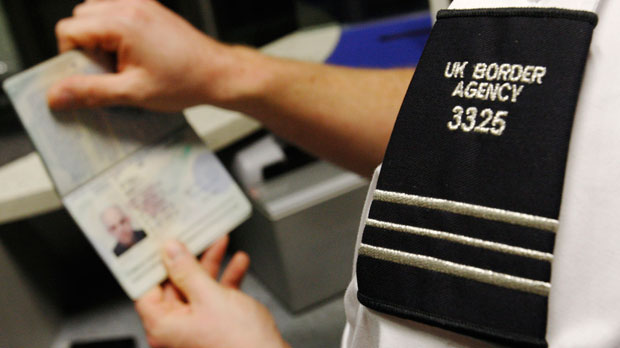Net migration up by a fifth as fewer leave
New figures show net migration has risen by 21 per cent to 239,000 as Political Editor Gary Gibbon recalls an immigration pledge by David Cameron labelled “barmy” by critics.
Long-term immigration was 575,000, similar to the levels seen since 2004, while long-term emigration fell to 336,000 from 427,000 in 2008, estimates from the Office for National Statistics (ONS) showed.
The Government has pledged to reduce net migration to the “tens of thousands” by 2015.
Study remained the most common reason for those coming to the UK, with three-quarters of the 228,000 who come to the UK for study coming from outside the EU.
But the number of people coming to the UK for a definite job was at its lowest in more than six years, at 110,000.
And the number of those leaving the UK for work-related reasons was at its lowest for three years at 179,000, the ONS estimates showed.
Gary Gibbon blogs: Immigration and David Cameron's 'barmy' pledge

The number of Poles living in the UK has risen from 75,000 in 2003 to 532,000 at the end of last year, other ONS figures released today showed.
It comes after Poland and the seven other central and Eastern European countries, known as the A8, joined the EU in May 2004.
Around two in three of all A8 citizens who have migrated to the UK have been Polish, the figures showed.
We are currently consulting on a range of further measures which will drive down numbers further.
FactCheck: can bosses pick Brits over immigrants?
“These statistics cover a period before we introduced our radical changes to the immigration system to bring net migration back down to the tens of thousands.”
But Shadow Home Office minister Shabana Mahmood disagreed, and said: “These figures reveal the gulf between the Government’s rhetoric on immigration, and the reality we see in the official figures.
“Since an immigration cap was introduced by the Government, the number of work-related visas issued has gone up.
“Net migration, the Government’s measure for its pledge to reduce net migration to the tens of thousands, now stands at 239,000.
Donna Covey, chief executive of the Refugee Council, said: “It is significant that there has been a marked increase in people from Libya and Bahrain applying for asylum here, clearly showing the impact that unexpected crises around the world can have on our asylum system in the UK.
“Yet the cuts in funding to asylum support services across the country will mean that charities will struggle to provide the support these people need.”
She went on: “Now that the asylum backlog has been finally dealt with, the Government has a real chance to make the asylum system as accessible, fair and effective as possible to ensure those in need of protection can get it.”
-
Latest news
-
As India goes to the polls in the world’s largest election – what do British-Indians think?6m

-
Tees Valley: Meet the candidates in one of the biggest contests coming up in May’s local elections4m

-
Keir Starmer says public sector reform will be a struggle7m

-
Nicola Sturgeon’s husband Peter Murrell charged with embezzlement of funds from SNP1m

-
Ukraine might finally get $60billion in American weapons and assistance to defend against Russia3m

-




